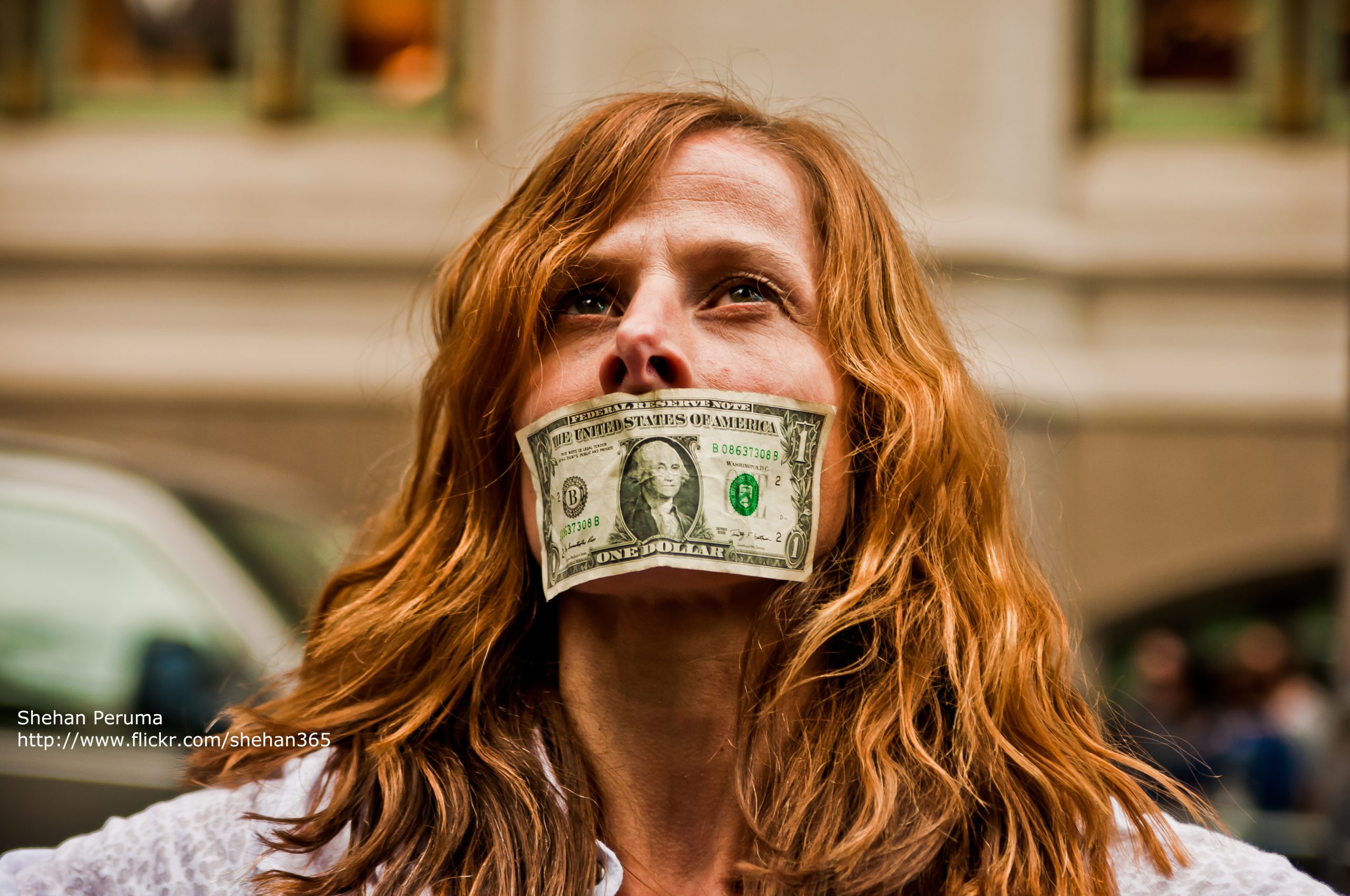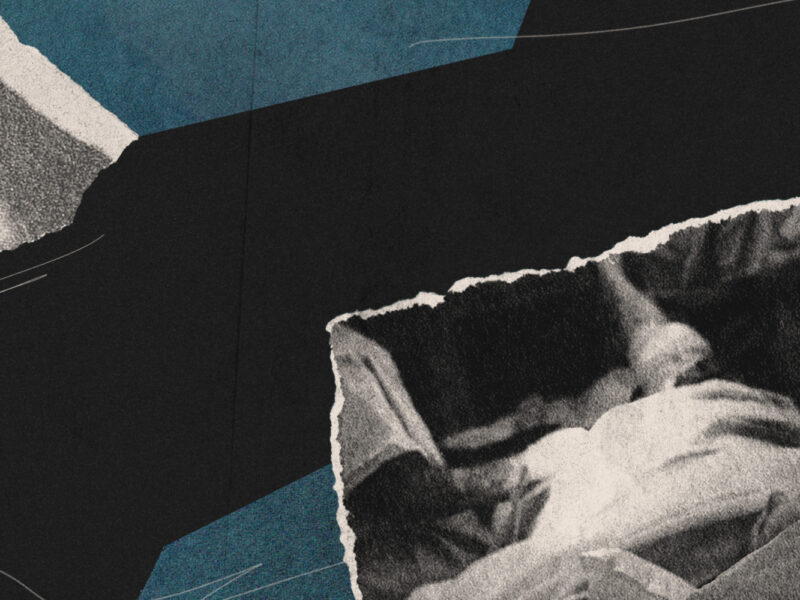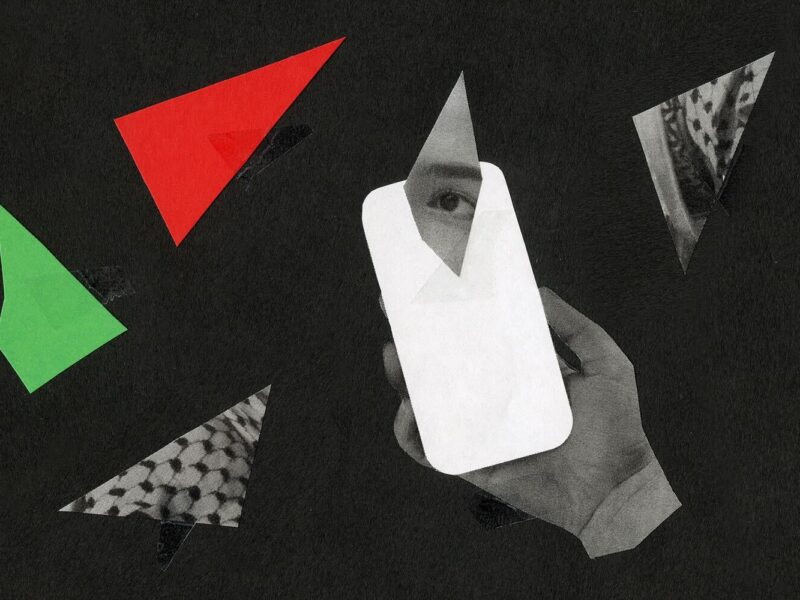Despite the bleakness of the current political moment, the slide to authoritarian oligarchy is not inevitable.
America’s inequality crisis has emerged as the central issue of the 2020 presidential campaign. The realization that “it’s the economic inequality, stupid,” was a long time coming, given that the global economic crisis of 2008 is now more than a decade behind us. During the intervening years the global grassroots Occupy movement demonstrated for months to raise awareness, staging sit ins on Wall Street in New York and in major cities across Europe. In remarks delivered in 2013, Barack Obama called economic inequality “the defining challenge of our time.” And three years ago an anti-establishment voter revolt gave the United States its first plutocrat president in the form of Donald J. Trump. Americans have at last come to understand the effect of economic inequality on their lives. But the question of how to address inequality is fraught with controversy.
At the Democratic party debates in June, nearly all of the candidates for the presidential nomination railed against the U.S. economy for benefitting only the very rich. Senators Elizabeth Warren and Bernie Sanders, who have made inequality their signature issue, have both proposed detailed plans that would completely remake the American economy. Even frontrunner Joe Biden, for years affiliated with centrist politics, noticed that progressivism was rising in popularity; he too is now talking about inequality—with his donors.
All this is a far cry from the “America is already great” message that hampered the Clinton campaign in 2016, but is undoubtedly closer to the way Americans actually feel. Six years ago, the English edition of Thomas Piketty’s seminal book Capital in the Twenty-First Century was published, becoming a surprise bestseller and a cultural phenomenon. At the time, economists regarded as controversial Piketty’s warning that if the concentration of wealth and power remains unchecked we risk repeating the adverse conditions of the nineteenth century. In a 2016 paper, however, French economists Emmanuel Saez and Gabriel Zucman showed that American inequality is at levels unseen since the Roaring 1920s, with the top 0.1 percent controlling 22 percent of the wealth. This year, former Fed chairman Paul Volcker told the New York Times that the U.S. is “developing into a plutocracy.” Nobel laureate economist Joseph Stiglitz has written that the American economy is “rigged.” In the media, you can often see our current era referred to as the Second Gilded Age, after the period between the end of the Civil War and the beginning of the twentieth century, when inequality ran rampant and robber barons like Andrew Carnegie, John D. Rockefeller and J. P. Morgan plundered and pillaged their way into unimaginable wealth.
But Americans, who encounter extreme concentrations of wealth and power wherever they turn these days, don’t need economists to tell them what they already know: that capitalism, or at least their country’s form of it, is broken — perhaps irreparably. While the U.S. is among the world’s wealthiest countries, it is also, according to the UN, “the world champion of extreme inequality.” Forty million Americans live in poverty; in some areas of the country, life expectancy is equivalent to that of developing states. Meanwhile, “deaths of despair” — caused by drug abuse, alcoholism and suicide — have spiked. According to the UN, Americans lead “shorter and sicker lives, compared to people living in any other rich democracy.”
The American Dream — the idea that if you worked hard, you could succeed regardless of where you were born or what your parents earned — is still the national ethos, despite the fact that the U.S. currently has the lowest rate of economic mobility of any industrialized democracy. In contrast to earlier generations, very few young Americans will do better than their parents: they are buried in debt, struggling with rising rents and healthcare costs, and see more deaths from suicide and drug overdose than any other age group. The life trajectory of most contemporary Americans is inextricably linked to their parents’ education and income, and to their geographic location. A recent study by researchers at the N.Y.U. School of Medicine, for instance, found a 30-year gap in life expectancy between two neighborhoods in Chicago, one rich and one poor.
Republicans, meanwhile, passed an enormous $1.5 trillion tax cut for the wealthy and are now considering another one, while trying to cut Social Security and kick millions off Medicaid. White-collar crime prosecutions are at a record low, the president is openly corrupt, and corporate lobbyists literally run the government. Is it any wonder that polls have repeatedly shown that over two thirds of Americans believe the economic and political systems are rigged in favor of big business and the rich? This is why millions of voters paid attention when Donald Trump said during his presidential campaign that “the American dream is dead.”
While growing inequality has long been a fact of American life, income inequality has increased dramatically since the mid-1970s, to the point where the top one percent now earn 26.3 times more than the other 99 percent. And while the top one percent’s share of the nation’s earnings has doubled during that period, the top 0.1 percent fared even better: their incomes quadrupled, even as incomes for the bottom 90 percent, once adjusted for inflation, have remained stagnant.
But it is the distribution of wealth that truly highlights the vast disparities hidden by four decades of policies that have created the illusion of economic prosperity. In the U.S. today, wealth is concentrated to such an extent that three men alone — Bill Gates, Jeff Bezos, and Warren Buffett — are richer than the bottom half of the entire population. Recent data released by the Federal Reserve reveals in startling detail how the distribution of wealth in the U.S. became so unequal. Matt Bruenig of the People’s Policy Project, who analyzed the data, calculated that between 1989 and 2018, the net worth of the top one percent increased by $21 trillion, while the bottom 50 percent became poorer to the tune of $900 billion during the same period. In 2018, Bruenig finds, the top one percent owned “nearly $30 trillion of assets while the bottom half owns less than nothing, meaning they have more debts than they have assets.”
A 2018 study by researchers at the University of Bonn shows how the 2008 financial crisis exacerbated U.S. inequalities, particularly for black households, as the crisis contributed to the widening of a racial wealth gap that had already persisted for decades due to systemic discrimination. According to the authors, the median black household has only 12 percent of the wealth of a median white household and earns about half the income, leaving black households 80 percent poorer than white households. The economic crisis of 2008 erased the few gains they had made, while over the past 70 years “virtually no progress” has been made in reducing wealth inequality between blacks and whites in the United States.
The U.S. is the most extreme example, but most of the world has seen increased inequality over the past 40 years. In the U.K., deaths of despair have spiked following a decade of deliberately cruel austerity policies. In France, 2018’s gilets jaunes protests highlighted the country’s inequality crisis, partly fueled by Emmanuel Macron’s policy of cutting taxes to the top one percent while leaving those clinging to the lowest rungs of the income ladder worse off.
The causes of rising inequality vary from country to country, but in the U.S. and Europe the economic literature points to a few culprits. These include automation, the decline of organized labor, financial deregulation, regressive tax systems that allow the rich to cut their own taxes, and globalization. In the U.S. in particular, a growing body of research points to monopoly power and diminishing competition across the American economy as a major contributor. Among economists, a new movement highlights the negative impact done by decades of policies based on dubious market fundamentalist reasoning.
At the heart of all this is the ongoing failure of capitalist democracies to counter growing concentrations of wealth and power, which in turn fuel voter discontent and elevate populist authoritarians to power worldwide. In recent years many have raised the questions of why liberal democracy failed to address the rise of economic insecurity, or why the popular backlash to rising inequality has been marked by a turn toward far-right nativism — as opposed to, say, a demand for higher taxes on the rich. Some, like Harvard economist Dani Rodrik and author Thomas Frank, argue that the answer lies in the left and center-left parties’ abdication of their historical responsibility toward low-income workers. Whereas the right has always been up front about its allegiance to business elites, the complicity of center-of-left parties in the policies that increased inequality has made them ill-equipped to address the problems that they helped create. A 2018 study by Piketty seems to confirm this view.
With democracies unable to ensure prosperity for all but the rich and well-connected, support for democracy is decreasing. In a recent speech, Angus Deaton, the Nobel Prize-winning economist, declared that rising inequality threatens democratic capitalism. But it’s not the “capitalism” part that’s under threat. Despite their populist protestations, far-right authoritarians like Brazil’s Jair Bolsonaro and Donald Trump are not opposed to rabid capitalism or even globalization—they just don’t believe democracy must be a part of it, or that it should stop them from giving handouts to their friends. Vanderbilt law professor Ganesh Sitaraman explains that the real threat to liberal democracy “isn’t authoritarianism—it’s nationalist oligarchy.” If left unchecked, the future of Western democracies could look a lot like Brazil, where pervasive inequality and lack of elite accountability gradually eroded support for democracy until the authoritarian Bolsonaro could rise to power — with the help of the country’s business elites.
Despite the bleakness of the current political moment, the slide to authoritarian oligarchy is not inevitable. One remedy, particularly in the U.S., is tougher enforcement of antitrust laws, which is necessary to constrain the power of corporate monopolies. Another, as historian-turned-folk hero Rutger Bregman told members of the global elite gathered in Davos earlier this year, is astoundingly simple: “Taxes, taxes, taxes.” Our current system, as documented by Zucman, is built upon massive tax evasion amounting trillions of dollars, by multinational corporations and the ultra-rich. Any solution to our inequality crisis necessarily involves wealthy people paying their fair share.
Any attempt at meaningful reform, however, would inevitably have to contend with the fact that all of our political and regulatory institutions have been completely captured by big business and the rich. Which brings us back to the 2020 elections.
The 2020 presidential election is not just a referendum on Trump’s authoritarian populism. It is also a test case for the ability of democratic capitalism to correct itself. The Democratic party’s candidate is thus a critical matter, whether that person is a progressive like Sanders or Warren, whose promises include a more equitable construction of the American economy, student debt forgiveness, reining in corporate power and a wealth tax; or a lifelong neoliberal centrist like Biden, who recently promised his donors that despite his newfound interest in income inequality, under his presidency “no one’s standard of living will change, nothing will fundamentally change.”
The choice goes beyond the likelihood of defeating Trump, straight to the heart of the debate over what American capitalism, and democratic capitalism in general, mean in the twenty-first century. Does democracy mean an oligarchy rooted in injustice, which is what we have had for the last few decades; or should it be a system that benefits the whole of society, rather than only a select few?



